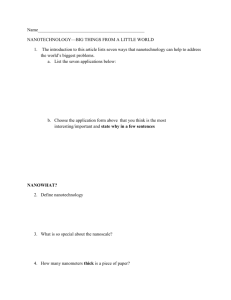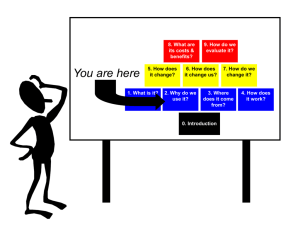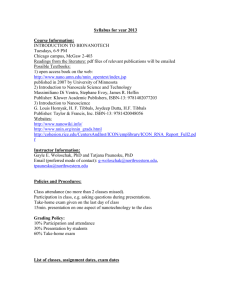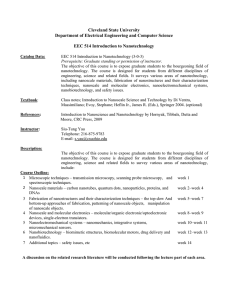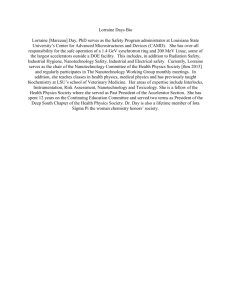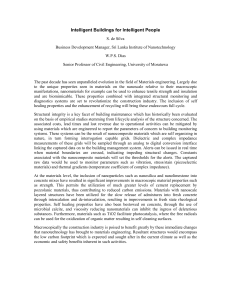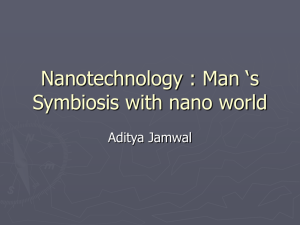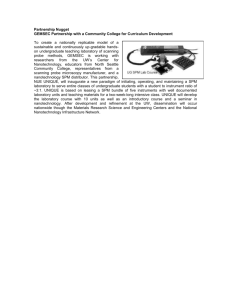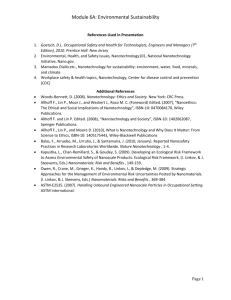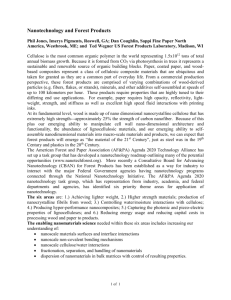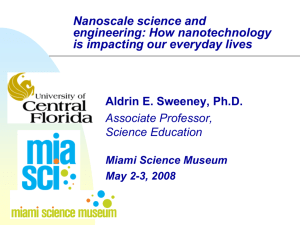Powerpoint
advertisement
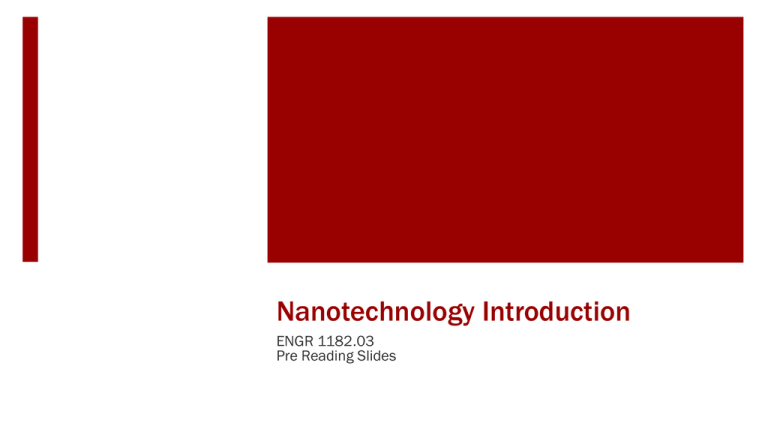
Nanotechnology Introduction ENGR 1182.03 Pre Reading Slides What is Nanotechnology? Research and technology development at the atomic or molecular level, in the length scale of approximately 1 to 100 nanometer range (NNI Definition) Provides a fundamental understanding of phenomena and materials at the nanoscale The National Nanotechnology Initiative (NNI) is a federal R&D program established to coordinate the multi-agency efforts in nanoscale science, engineering, and technology. Understanding Size – 1 meter Understanding Size – 10 cm (101 m) Understanding Size – 1 cm 2 m) (10 Understanding Size – 100 μm (104 m) Understanding Size – 10 μm -5 (10 m) Understanding Size – 1 μm 2 m) (10 Understanding Size – 100 nm (107 m) Understanding Size – 10 nm -8 (10 m) Understanding Size – 1 nm 9 m) (10 Nanotechnology Applications Computing – increases in memory densities and processor speeds Manufacturing – improved techniques for top-down and bottom-up nano-manufacturing Top-Down : Conventional manufacturing processes at a reduced scale. Bottom-Up: Making materials and products from the bottom-up, that is, by building them up from atoms and molecules. Medical – biological applications include : DNA analysis and detection of HIV, diabetes, pregnancy, etc. Detect and treat cancerous cells by nano-engineered devices Environmental – cleaning water and air to higher levels of purity Removing the finest contaminants from water and air to promote a cleaner environment by nano-filtering Energy – improving the efficiency of solar cells Aerospace and defense – applications include detection of deadly agents such as saran gas (biochips for detection of hazardous chemical and biological agents) Implantable Sensors CardioMEMS microchip transmits blood flow and pressure wirelessly Retina Implants Cochlear Implants Have coatings to minimize rejection/infection in the body. Have finer electrode arrays. Have on board signal processing unit. Top-Down Nano-Manufacturing MEMS Micro-Electro-Mechanical Systems (MEMS) is the integration of mechanical elements, sensors, actuators, and electronics on a common silicon substrate through microfabrication technology 2 mm Right: Micromanufactured gear next to a housefly Nanotechnology at OSU Nanobiotechnology Nanoscale Science and Engineering Center for Affordable Nanoengineering of Polymer Biomedical Devices http://www.nsec.ohio-state.edu/ Prof. L. James Lee, Director Nanocomposite Materials ChBE, MSE, ME, ISWE, Chemistry Photonics, Nanoelectronics, Optoelectronics ECE, Physics, Chemistry Center for Multifunctional Polymer Nanomaterials and Devices (CMPND) Collaboration among OSU, UAkron, UDayton, and Ohio Industry. Prof. L. James Lee, Director
